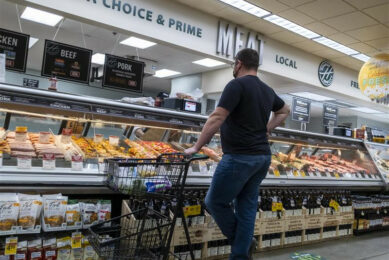United States to appeal WTO ruling on Country of Origin Labeling
The United States have announced to appeal a World Trade Organization ruling against a law that requires country-of-origin labels (COOL) on all meat sold in US grocery stores.
The labels became mandatory in 2009 and requires grocers to put labels on cuts of beef, pork, lamb, chicken and ground meat or post signs that list the origin of the meat.
COOL provision
In November 2011, a WTO panel ruled against the COOL provision of the law saying it violated technical barriers to trade. Canada and Mexico, which brought the case to the WTO, applauded the decision, arguing that shipments of cattle and hogs from those countries declined sharply after COOL went into effect.
Andrea Mead, a spokeswoman for the US Trade Representative’s office, said the ruling last November confirmed the United States has the right to adopt mandatory COOL requirements to help consumers make informed purchasing decisions.
She said, “We were disappointed that the panel disagreed with the way that the United States designed its COOL requirements with regard to beef and pork. Accordingly, we are challenging the panel’s report before the WTO Appellate Body.”
Meat-packing plants
Many US meat-packing plants, especially those near the US-Canada border, either stopped accepting Canadian livestock or bought less due to the increased costs of segregating animals by domestic and foreign origin.
Both Canada and Mexico were are disappointed by the US move. Canadian agriculture minister Gerry Ritz responded to the US appeal: “The WTO panel decision recognised the integrated nature of the North American supply chain and marked a clear win for our industry. We are confident that the decision will be upheld so trade can move more freely, benefiting producers and processors on both sides of the border.”
Mexico’s economy ministry said Friday that it would defend its interest in the appeal process.
Related website:
• World Trade Organization (WTO)











